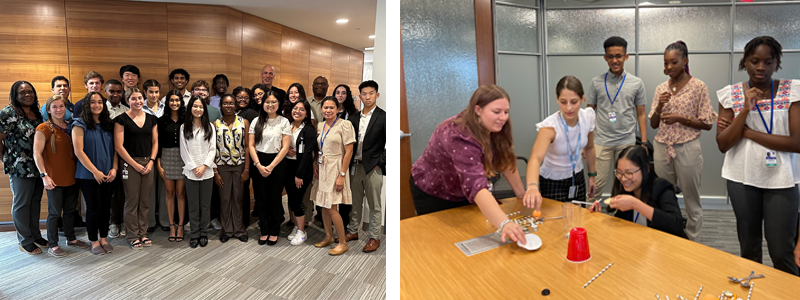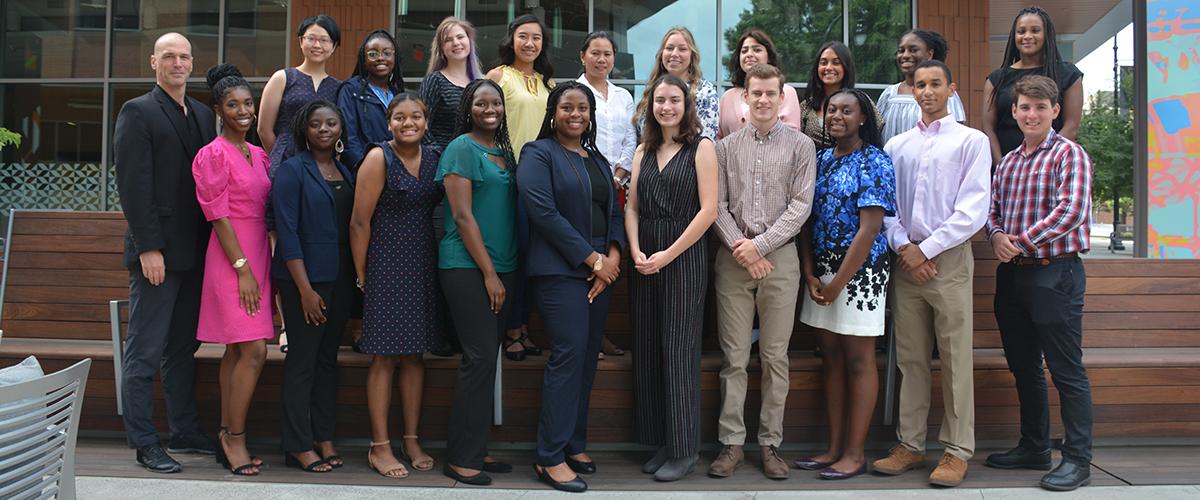
The Summer Training in Academic Research (STAR) Program provides a high-quality research experience for high school students, undergraduate students, and medical students during the summer academic break.

The five-week in-person program will give participants interested in science and medicine real hands-on experience in research methodology and writing. Participants are placed in teams and matched with Duke faculty mentors to work on an original, hypothesis-driven project, originating as a one-page summary and culminating in a complete research paper. A goal of the program is to have every participant qualify for co-authorship on a peer-reviewed manuscript related to their team’s project.
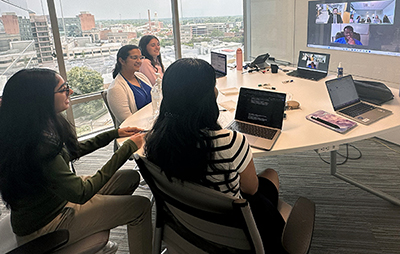
The STAR Program is held at the Duke Clinical Research Institute in Durham, N.C., which has organized educational and support programs for junior faculty, fellows, residents, and medical students as well as high school and college students. Participants receive a stipend to attend, which makes the program an option even for students who plan to work over the summer break (see below)
Expansions to the STAR Program
In 2024, the program expanded to include a five-week program specifically designed for medical students. If interested in applying to the program for medical students, please check this website for more information.
2026 STAR Program Applications
For medical students, the Summer 2026 application period is October 1–November 15, 2025. The Summer 2026 application period for college and high school students is from November 17, 2025, through January 2, 2026.
The in-person program will take place from June 22 to July 24, 2026. Additionally, pre-reading materials will be provided in early June and should be completed remotely prior to the program's start. There will also be remote activities to complete in early August. The remote activities are designed to be flexible in timing.
Program Details
In the first two weeks of the in-person program, participants meet with their faculty mentors and develop a specific question or issue related to the uses and effects of a particular medication. The teams then perform a thorough review of the literature and develop an in-depth description of the research question. Participants who are 18 years and older will also experience clinical medicine firsthand by shadowing a physician on hospital rounds.
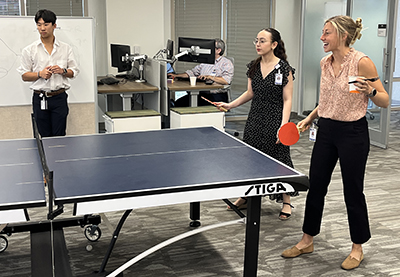
During the in-person weeks, the teams develop a thesis consisting of a description of the research question, aims, methods, figures/tables, results, and discussion for their specific project. Throughout this time, a medical writer provides tutorials on developing a scientific manuscript, a statistician provides lectures in applied statistics and works with students to analyze data, and Duke medicine and pediatrics faculty members give lectures on neonatology, antimicrobial therapy, and pharmacoepidemiology. The program also includes a medical ethics seminar on the responsible conduct of research.
To review progress and ensure the scientific validity of their work, program participants meet with their mentors weekly. At the conclusion of the in-person program, teams do a formal presentation and, in early August, complete a written thesis of their project. The papers are included in articles submitted to peer-reviewed scientific journals, meaning that the participants have the potential of having their work published.
Why Publish?
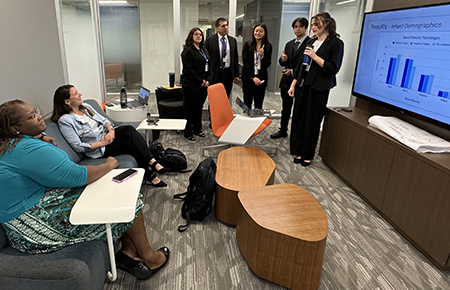
Publishing research can be a critical step toward a scientific or medical career. It provides recognition from the scientific community and an opportunity to build relationships with others who are doing research in the field, who can provide feedback and offer ideas for future research. Publishing also provides the opportunity to get results out into the world. Even if research findings are groundbreaking, they will not make any difference if no one knows about them and cannot apply them to real patients.
Some examples of previously published articles by Duke's STAR program participants include:
- Impact of Gastrostomy Tube Placement on Short-Term Weight Gain in Hospitalized Premature Infants
- Medications and in-hospital outcomes in infants born at 22-24 weeks of gestation
- Surfactant Administration in Preterm Infants: Drug Development Opportunities
- Furosemide Exposure and Prevention of Bronchopulmonary Dysplasia in Premature Infants
- Predictors of Prolonged Breast Milk Provision to Very Low Birth Weight Infants
- Evaluation of Gentamicin Exposure in the Neonatal Intensive Care Unit and Hearing Function at Discharge.
- Prevalence and safety of diazoxide in the neonatal intensive care unit.
- Association of Atrial Septal Defects and Bronchopulmonary Dysplasia in Premature Infants.
- Association between Furosemide Exposure and Patent Ductus Arteriosus in Hospitalized Infants of Very Low Birth Weight.
- In-hospital outcomes of premature infants with severe bronchopulmonary dysplasia.
- Risk factors for group B streptococcal disease in neonates of mothers with negative antenatal testing
- Effectiveness of Granulocyte Colony-Stimulating Factor in Hospitalized Infants with Neutropenia
- Rifampin use and safety in hospitalized infants
- Use and safety of erythromycin and metoclopramide in hospitalized infants
- Cefepime and ceftazidime safety in hospitalized infants
- Enteral feeding with human milk decreases time to discharge in infants following gastroschisis repair
- Safety of histamine-2 receptor blockers in hospitalized VLBW infants
- Early-onset sepsis in term infants admitted to neonatal intensive care units
STAR Program Faculty

The program capitalizes on world-renowned training programs in place at Duke University under the leadership of Sarah Armstrong, MD, professor of pediatrics and professor of family medicine at Duke, and Danny Benjamin, MD, PhD, distinguished professor of pediatrics at Duke and deputy director of the Duke Clinical Research Institute. Other faculty in the STAR Program are actively involved in NIH-sponsored research in clinical pharmacology, statistics, epidemiology, therapeutics, and trials. Combined, these faculty members have more than 200 publications on which trainees are listed as either first author or co-author. The team of instructors also includes a writing instructor, statisticians, and operations staff. View profiles of the instructional team members.
Eligibility & Compensation
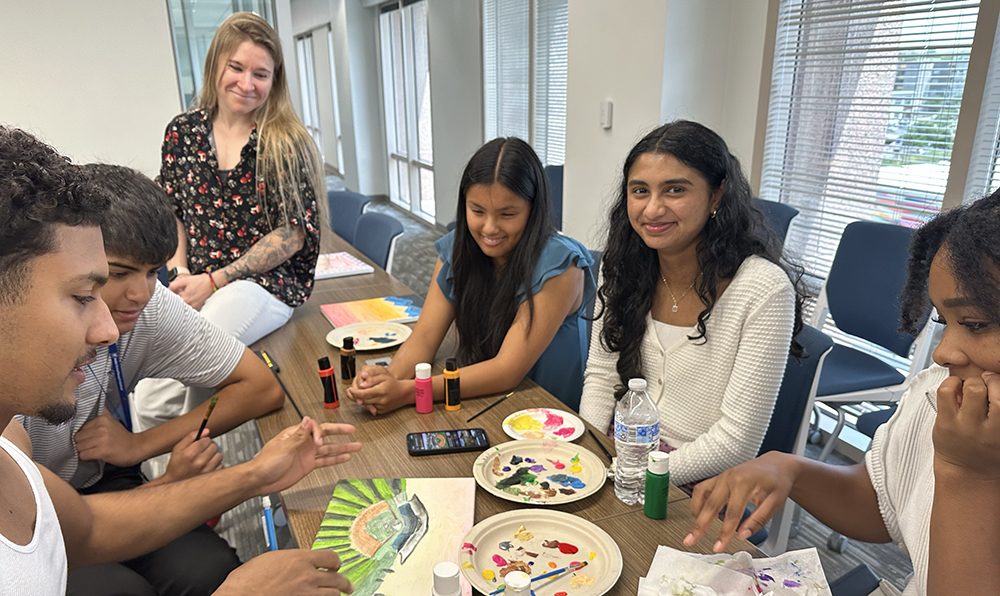
Eligibility
- Medical students, rising seniors, seniors in high school, and undergraduates are encouraged to apply.
- No prior experience in research is necessary. Applicants only need to demonstrate strong academic performance and an interest in science.
- U.S. citizenship or permanent residency is required for participation (per NIH policy).
Compensation
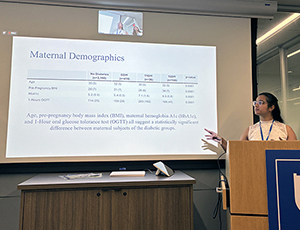
A stipend is provided to participants, making the program an option even for students who plan to work over the summer break.
- Medical students: $8,000
- College students receive $5,000.
- High school students receive $4,000.
- The only costs associated with the program are housing and transportation. Participants are responsible for securing their own room and board.
How to Apply
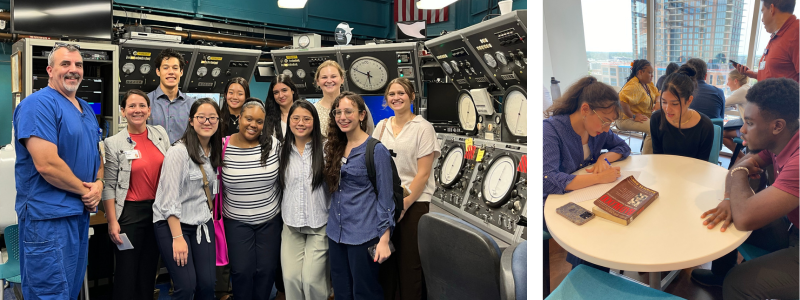
Application Period
- Medical Students: October 1–November 15, 2025 (closed)*
- College & High School Students: November 17, 2025–January 2, 2026 (closed).**
- MSU Undergraduate Students: November 17, 2025–January 2, 2026 (closed).**
*Applications must be received by November 15, 2025, at 11:59 p.m. EST. Applications received with a date and time stamp of November 16, 2025, or later will not be considered.
**Applications must be received by January 2, 2026, at 11:59 p.m. EST. Applications received with a date and time stamp of January 3, 2026, or later will not be considered.
Application Instructions & Links
Please submit a copy of the American Medical College Application Service (AMCAS) or American Association of Colleges of Osteopathic Medicine Application Service (AACOMAS) application used for your previous medical school application, your essay, and one letter of recommendation via the application portal found on the program web page. Please note that the application cycle for this year's program closed on November 15, 2025.
Please submit the following:
- Completed application for high school or college students (use the button below).
- School transcript.
- Two letters of recommendation provided by non-relatives. Letters are to be submitted by the person who wrote the letter by January 2, 2026, at 11:59 p.m. EST (use the button below).
- Essay: “What I want to be, and how I’m going to make it happen” (300 to 500-word limit).
Please note that the application cycle for this year's program closed on January 2, 2026.
Learn more about the Duke-MSU STAR Program Partnership here.
Please submit the following:
- Completed application for high school or college students (use the button below).
- School transcript.
- Two letters of recommendation provided by non-relatives. Letters are to be submitted by the person who wrote the letter by January 2, 2026, at 11:59 p.m. EST (use the button below).
- Essay: “What I want to be, and how I’m going to make it happen” (300 to 500-word limit).
Please note that the application cycle for this year's program closed on January 2, 2026.
Frequently Asked Questions
Questions may be submitted via email to STAR Program dukestarprogram@duke.edu. We regret that we are unable to respond to phone calls.
